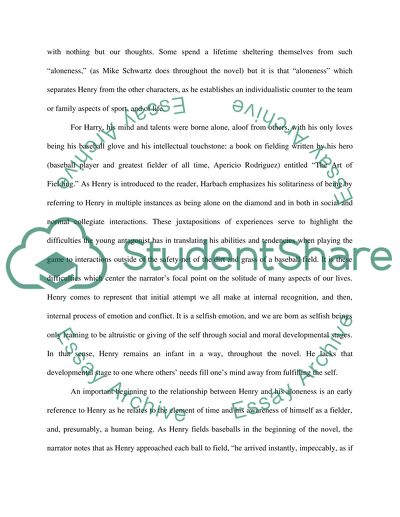Cite this document
(“Aloneness as in the Arts of Life and Baseball Essay”, n.d.)
Retrieved from https://studentshare.org/literature/1449634-about-the-novel-the-art-of-fielding-by-chad
Retrieved from https://studentshare.org/literature/1449634-about-the-novel-the-art-of-fielding-by-chad
(Aloneness As in the Arts of Life and Baseball Essay)
https://studentshare.org/literature/1449634-about-the-novel-the-art-of-fielding-by-chad.
https://studentshare.org/literature/1449634-about-the-novel-the-art-of-fielding-by-chad.
“Aloneness As in the Arts of Life and Baseball Essay”, n.d. https://studentshare.org/literature/1449634-about-the-novel-the-art-of-fielding-by-chad.


